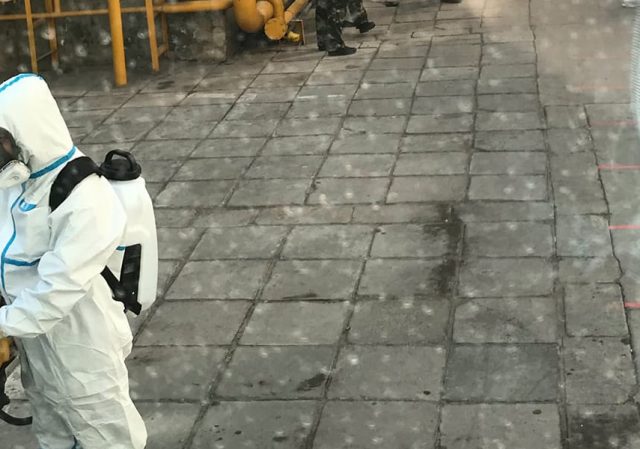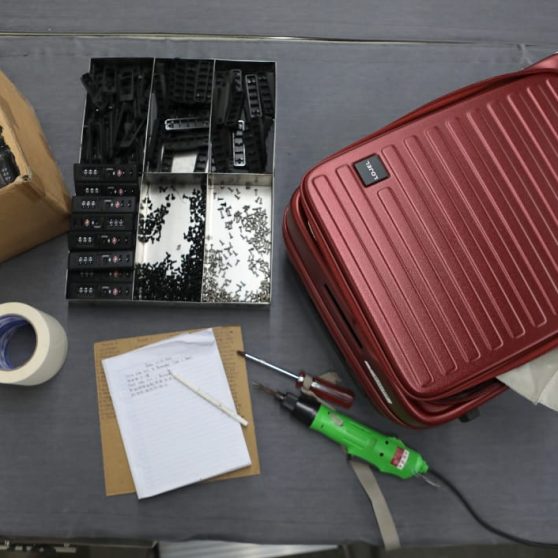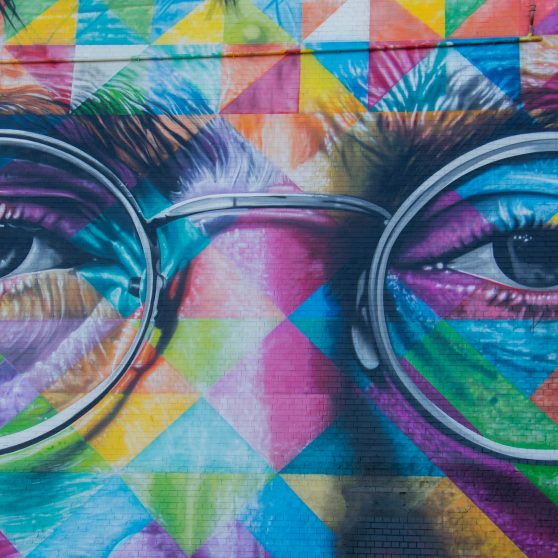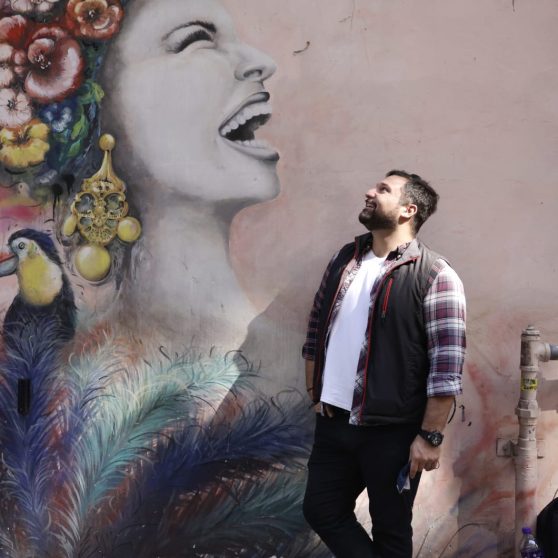What is was like to return to China during COVID-19.
Step 1: Flying home to Shanghai with a guarded flight crew
After the pandemic hit the Western World, Chinese aviation imposed massive restrictions on international travel. Foreigners were not allowed to enter China after March 28th and Chinese citizens have only very limited flight options, with each Chinese airline only allowed to operate a maximum of one flight per week to any specific country.
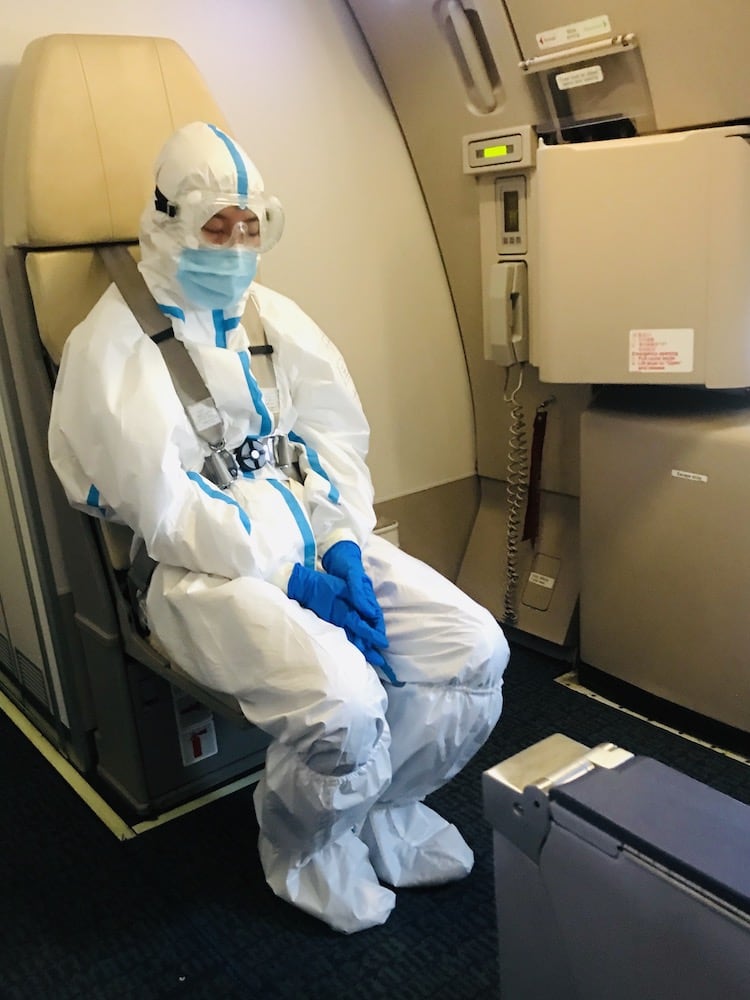
After being stuck in Europe for a while, I finally managed to get a ticket home without the flight being cancelled. It was the longest and most exhausting flight of my life. Once I got onboard, 70% of the passengers were equipped with protective suits, not to mention the guarded flight crew. The flight went smoothly but was a struggle, with no cabin catering aside from periodic basic snacks and beverages. However, our eagerness to return home made it a sweet pill to swallow.
Step 2: Quarantine hotel and nucleic testing
After landing, all passengers had to write out detailed information on their recent travel history, symptoms over previous days and contact details. Passengers were divided into different groups and subjected to body temperature tests, a questionnaire survey, a nucleic test (sounded scary and indeed it was) and finally a police-escorted bus to the hotel.
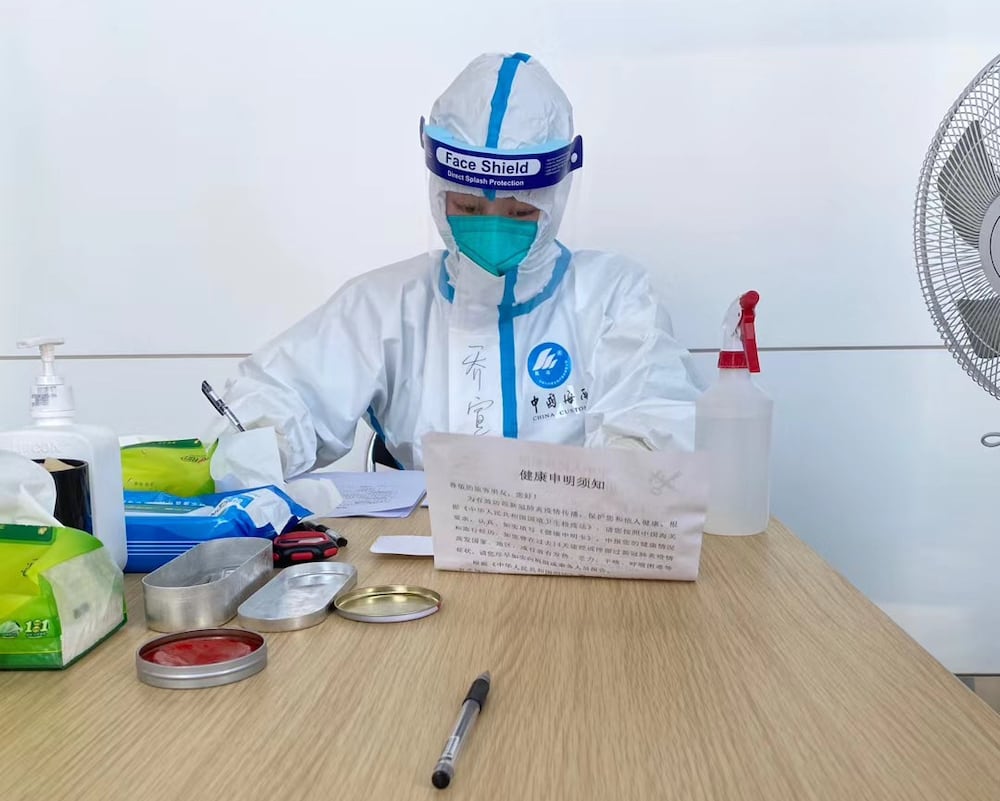
The whole procedure took around 3-4 hours until I made it to my quarantine hotel. Three meals were provided at the start of each day, body temperature checks conducted twice a day and the hotel corridor was sprayed three times a day with disinfectant fluid. Never in my life have I had such a lab rat-like travel experience. You could feel the tension oozing out from all the masks and protective suits. It felt like a war, — a war against an invisible and deadly enemy that could strike at any moment. The fear alone was pandemic.
Step 3: Setting an alarm clock for ordering groceries online
Once we were released from quarantine, it was time to navigate the ‘new normal.’ Living in one of the most advanced e-commerce countries in the world, we have become used to shopping online, but never as much as now. In normal days it was fairly easy to order groceries and receive delivery within half an hour. During COVID-19, due to the limited amount of deliverymen and massively increased online orders, Fresh Hema, a national grocery chain, had difficulty meeting demand.
At first, we could reserve some delivery slots, but soon Hema only released slots at midnight and people began to set an alarm to stand the best chance of being able to secure a delivery slot. It felt like another 11/11 Chinese shopping festival, but this time we were searching in desperation, not hunting for bargains.
Step 4: Avoiding human contact, toothpicks and elevators buttons
As the coronavirus started to hit China in January, people were trying everything they could to avoid any human contact. In the compound I live in, some residents brought tissues with them to press the elevator each time, some used their gloves to do the job, until one day some thoughtful neighbor prepared a pile of toothpicks hanging on the wall, reminding that people should pick one each time and drop it afterwards, to eliminate a second use.
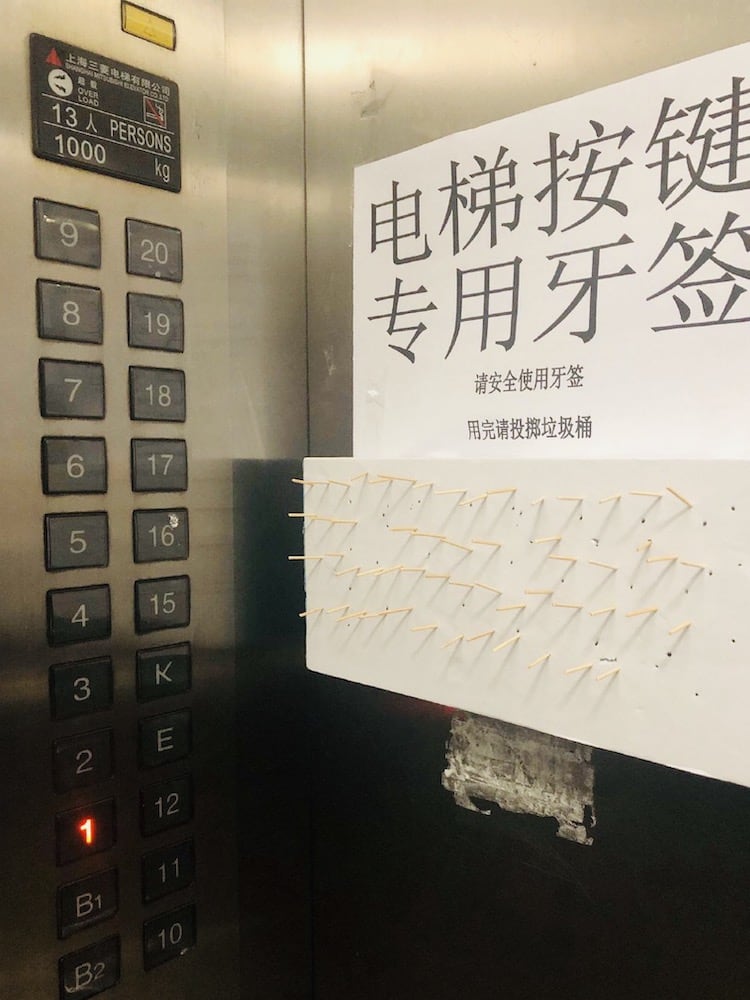
Step 5: Masks for you and your dog
In China, some people were under the impression that their pets might get coronavirus, especially after the news that two dogs in Hong Kong tested positive for it. While research has shown that the virus can only spread from cat to cat, there is no absolute evidence to show that the virus can be transmitted from pets to humans. However, citizens are still being extra careful with their pets. Some, for example, chose to walk their dogs with facial masks and, incredibly, it has become a common scene.
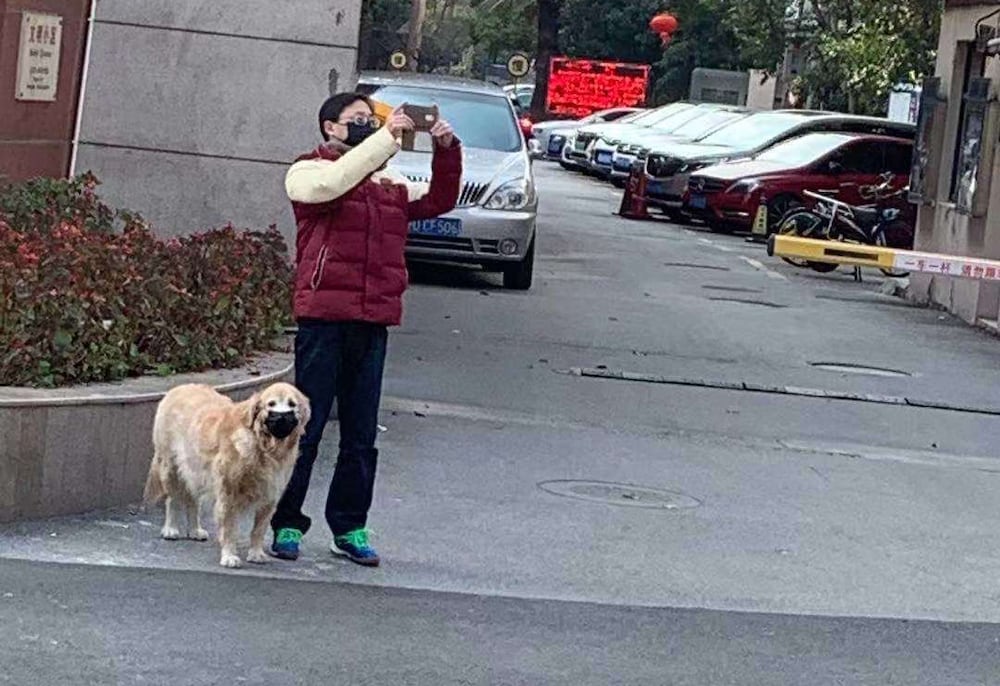
All over the world lives have changed. Some have ended, some hurtled into poverty, but all altered by the invisible virus unleashed on our planet. My story is just one example of temporarily shocked humanity,– or possibly a new normal. There is no way of knowing. The examples are China-focused since I am Chinese and I feel the eagerness to show the detailed daily life here during Covid-19.
But will these changes be lasting? Will historians mark time as BV and PV (Before Virus and Post Virus), or is this a passing episode in the rollercoaster that is human history? Will this shape my country into a different outlook? Only time will tell. In China, “defeat the virus” is the term people tend to use for now, at the individual level, though, I wish we didn’t have to make and share these difficult decisions again, and people around the world could reunite together soon.
Echo Zhang works as a media contributor and PR specialist living in Shanghai, China. She covers topics from dining, nightlife, travel and luxury. After 5-years of living in Shanghai where she calls home now, she enjoys the daily life of discovering niche and daily spots around the city. Echo has published stories for GQ China, BMW social media and many more.
